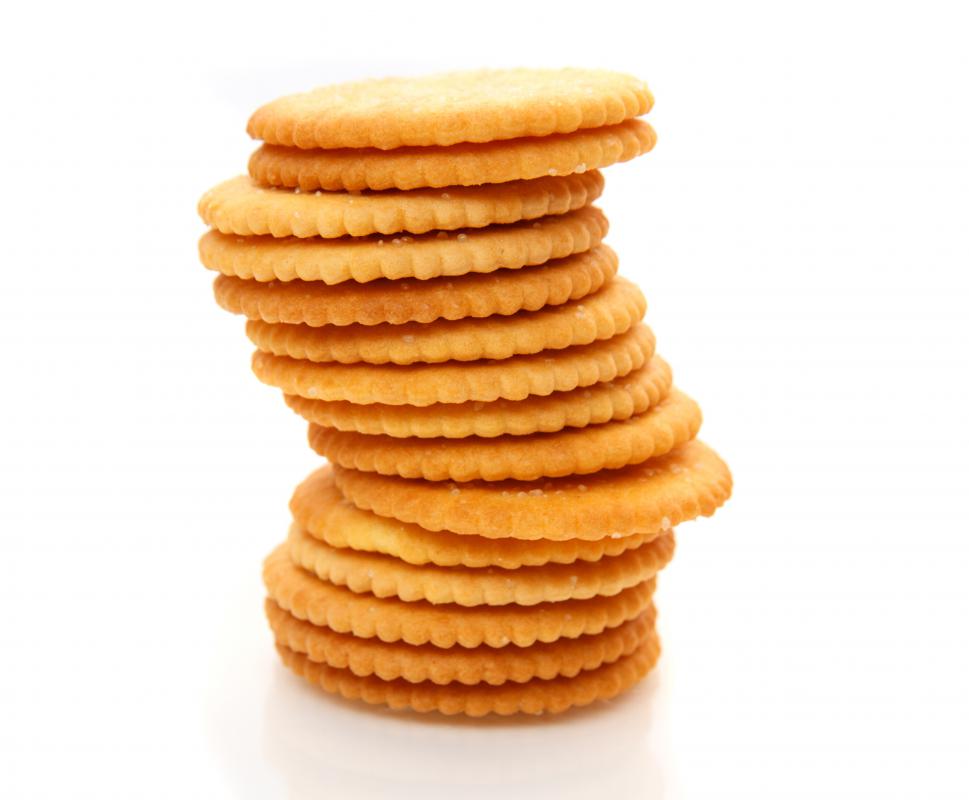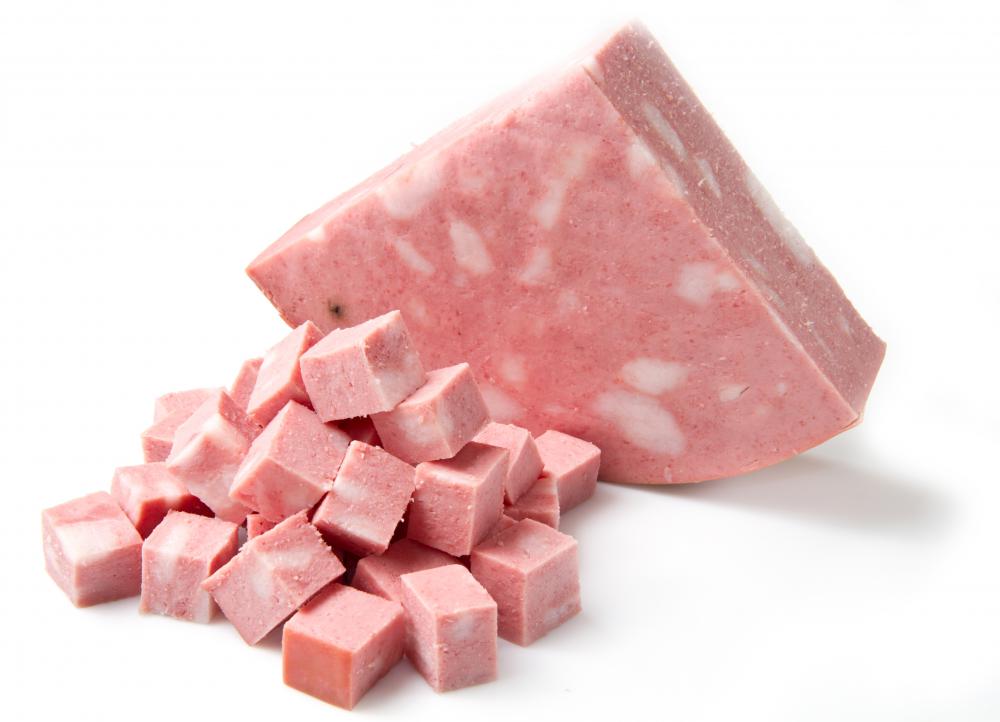At WiseGEEK, we're committed to delivering accurate, trustworthy information. Our expert-authored content is rigorously fact-checked and sourced from credible authorities. Discover how we uphold the highest standards in providing you with reliable knowledge.
What is a Hiatal Hernia Diet?
Someone with a hiatal hernia, a condition that affects the stomach muscles and the diaphragm, may need to adopt a special diet to reduce the severity of symptoms caused by the condition. This diet involves modifying not only what the person eats, but also how and when he or she eats. In general, someone on a hiatal hernia diet must try to avoid very spicy foods and other triggers, and he or she must eat smaller meals.
The diaphragm is a large, very thin, dome-shaped muscle that spans the abdominal cavity. The abdominal organs, including the stomach, are located below the diaphragm. In the center of the muscle, a hole called the hiatus allows the esophagus access to the stomach. The stomach muscles are located around the hiatal hole. In someone with a hiatal hernia, these muscle bulge through the hiatus, causing the top portion of the stomach also to protrude through the hole.

People with this condition are susceptible to symptoms such as difficulty swallowing, belching, hiccuping, nausea, bloating, stomach pain, acid reflux, regurgitation of stomach contents and chest pain. Often, these symptoms are worse after eating and can become more noticeable when lying down. Not everyone with a hiatal hernia will have symptoms; for those who do, following a special diet can help ease their pain and discomfort.

Many people on a hiatal hernia diet find it useful to put food into different categories based on how they affect the condition. The three categories are foods that are safe to eat and don’t cause symptoms, foods that can be eaten in moderation, and foods that cause symptoms even if only a small amount is eaten. Drinks also can be categorized in this way.

Foods that most people can tolerate include lean meats and low-fat dairy products; egg whites; whole-grain breads and crackers; vegetables such as potatoes, broccoli, cabbage, carrots, beans and peas; and fruits such as apples and bananas. Those that cause symptoms in most people include citrus fruits and juices, tomatoes, fatty meats and dairy products, most types of alcohol, coffee, tea, creamy salad dressings, and high-fat desserts and sweets. These foods tend to cause symptoms even when consumed in small amounts.

Many foods can be tolerated when eaten in small amounts. These include berries, peaches, onions, garlic, medium-fat meats, whole eggs, fried foods, deli meats, medium-fat cheeses and dairy products, non-alcoholic beer and wine, soda, and low-fat desserts and sweets. Determining what foods can be eaten in small amounts is often a matter of trial-and-error, because not everyone with a hiatal hernia responds exactly the same way to all foods. Keeping a food diary to determine what foods can be tolerated is useful for creating a personalized hiatal hernia diet.

People with hiatal hernias often must modify the way they eat in order to reduce symptoms. For example, it can be useful to eat several smaller meals instead of three large ones. In addition, someone who is following a hiatal hernia diet should avoid eating in the two or three hours before bed and should sit upright for at least an hour after every meal. These measures help reduce the burden on the stomach and make it less likely that food will be regurgitated.
AS FEATURED ON:
AS FEATURED ON:


















Discussion Comments
I had my hernia repair surgery at Shouldice Hospital in Ontario. They have a special hernia diet there and I followed that. It included a lot of vegetables and was easy to digest. It was really good. I never had any indigestion problems following this diet.
A man with a bad hiatus hernia can eat beetroot and carrot. I think he might not be able to digest them, though, and more acid will be produced.
I have to eat several small meals. Otherwise, the symptoms reappear. Big meals have me sitting up all night short of breath, bloated feeling, coughing, etc.
I got a hiatal hernia by working hard heavy jobs, not from eating foods and straining in the restroom!
Do you know if there is a connection between the formation of a hiatal hernia and diet? I have been trying to find out more about the causes of hiatal hernias, but all the articles that I find out about is diets for hiatal hernias.
While that's all very interesting, I'd really like to know more about what causes hiatal hernias, and whether diet plays a role. For instance, do people who eat certain kinds of food become more prone to hiatal hernias, or are there good foods that a person can eat to help prevent a hiatal hernia?
I would love to learn some more information about this; do you have any posts like that?
Thank you so much for this article! My father in law is about to undergo surgery for hiatal hernia treatment, and I have been looking everywhere to find the best diet for a hiatal hernia post-surgery.
He has just had the hardest time dealing with this hernia; it has really upset all of our lives, since he's just been unable to eat most of his favorite foods in the amounts that he likes, which makes him very cranky.
And of course it didn't help that it took the doctors so long to diagnose him -- although I understand that that is actually pretty common with hiatal hernias.
Anyway, thanks so much for including this list of hiatal hernia foods and a plan for a hiatal hernia diet -- it really helped me out so much!
Wow, it sounds like I could go on a hiatal hernia diet plan just to lose weight! That sounds so healthy; I wonder how many people stick with the diet after the hiatal hernia surgery or treatment just to keep the good effects that it has on their body.
That really does sound like a great diet for anyone who wants to lose a few pounds -- lean meats, vegetables, minimal sweets and dairy products.
The only thing I don't know about is the eating several small meals a day. I've heard a lot of conflicting research about that, so I'm kind of torn on whether its better to eat several small meals throughout the day or one big one. Either way, I bet this is really healthy, even if you don't have a hernia!
Post your comments